Children develop speech, language and communication at different rates. They need to learn the skills of listening, turn taking and articulating thoughts and actions. Learning the art of conversation and communication takes time and practice in everyday situations such as play. It is important that oral language and verbal skills are well established before children are expected to engage fully in formal reading and writing. When children have a good grasp of sounds, they are more ready to recognise these sounds in print form. And when children have refined their fine motor skills, they will begin to make marks. They will then experiment with letter formation, copy letters, write their names, and eventually start to make links between phonics and writing skills.
A sample of Literacy Learning Intentions that can be easily provided for outdoors
- Express oneself with increasing clarity and confidence, using a growing vocabulary and more complex sentence structure
- Understand and use social conventions in conversations
- Initiate and sustain conversations with adults and peers
- Retell stories, events or personal experiences in sequence with reasonable detail
- Listen with increasing attentiveness and for longer periods of time
- Read on sight, some words in a range of meaningful contexts
- Understand the purpose of and use environmental print
- Write without prompting and make decisions about how and what they will write
- Use a wide range of vocabulary in their writing
- Show increased control over formation of lower and upper-case letters, size and spacing
Experiences that support children’s acquisition of language, communication and literacy skills
Building with blocks - is often where superb ideas for role play come from. The children here are building an ice cream shop. Lots of negotiation takes place among the children about what items they will need for the shop, and then they move to creating their own signage. Role play provides great opportunities for children to talk to each other, and when adults sensitively join in, the language can become much richer. The best role play scenarios are those which have been initiated by the children.
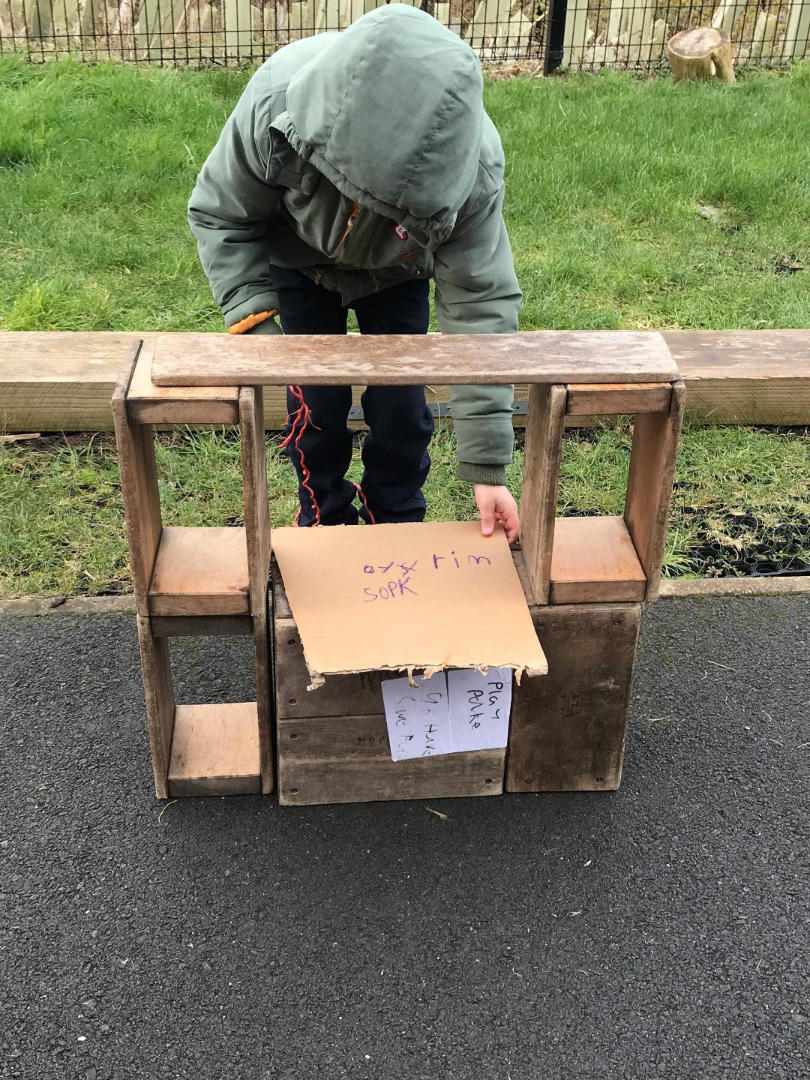
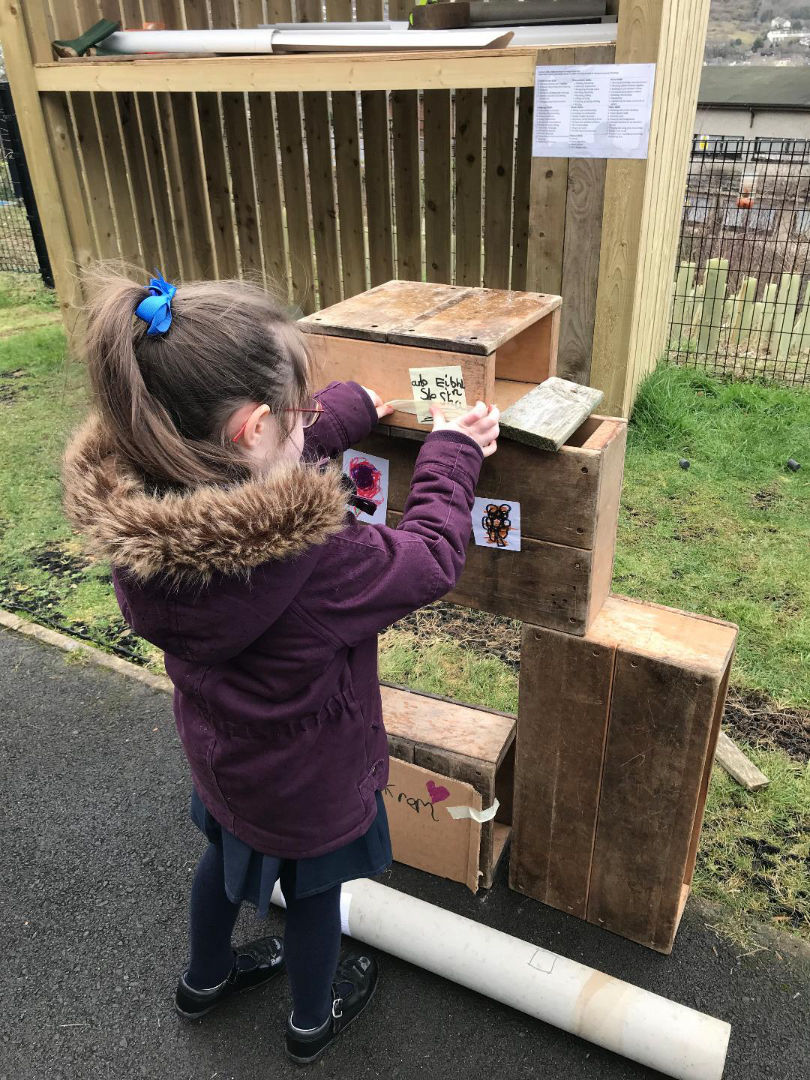
Writing Trolley - with clipboards, whiteboards, card, pens, markers, tape, string and scissors is always available outdoors. The children are encouraged to use these tools to write lists, messages, notes, labels or whatever they desire to do. There is no pressure placed on the children to do so but they are naturally driven to write notes and leave message for others to find. In fact, you will often observe writing frenzies taking place for a variety of purposes. The children have a go at sounding out, spelling and writing their own words. When they have a purpose that is meaningful to them, then they write!
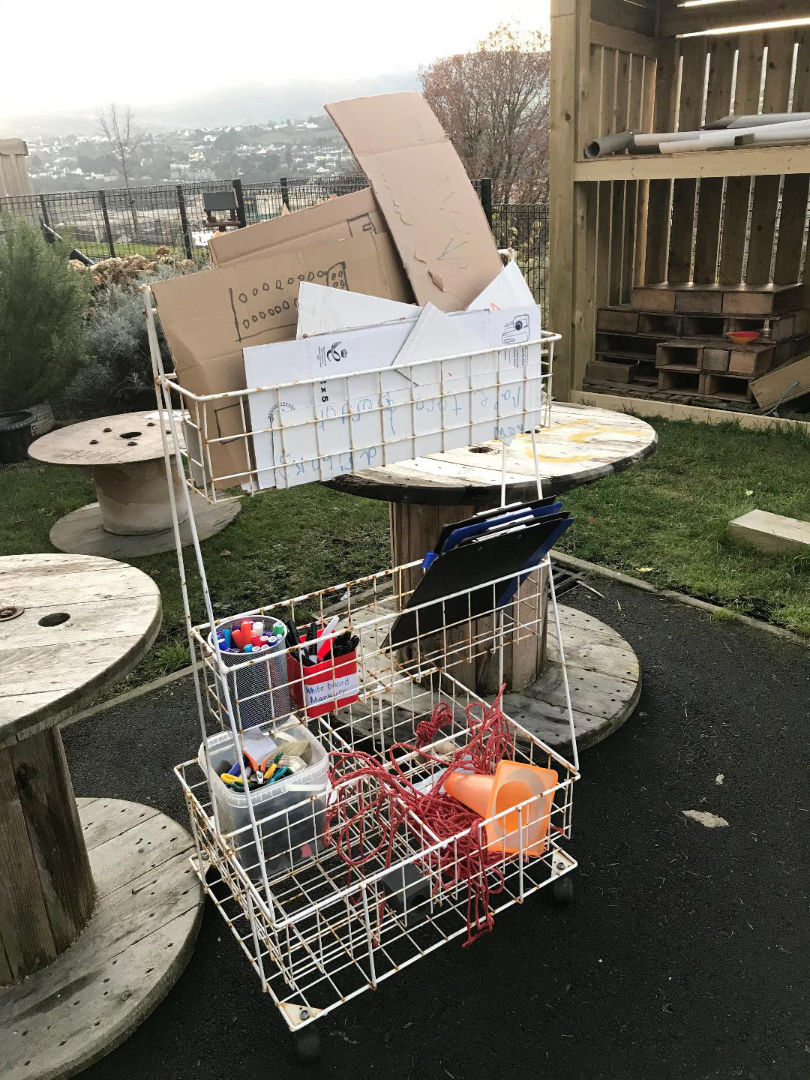
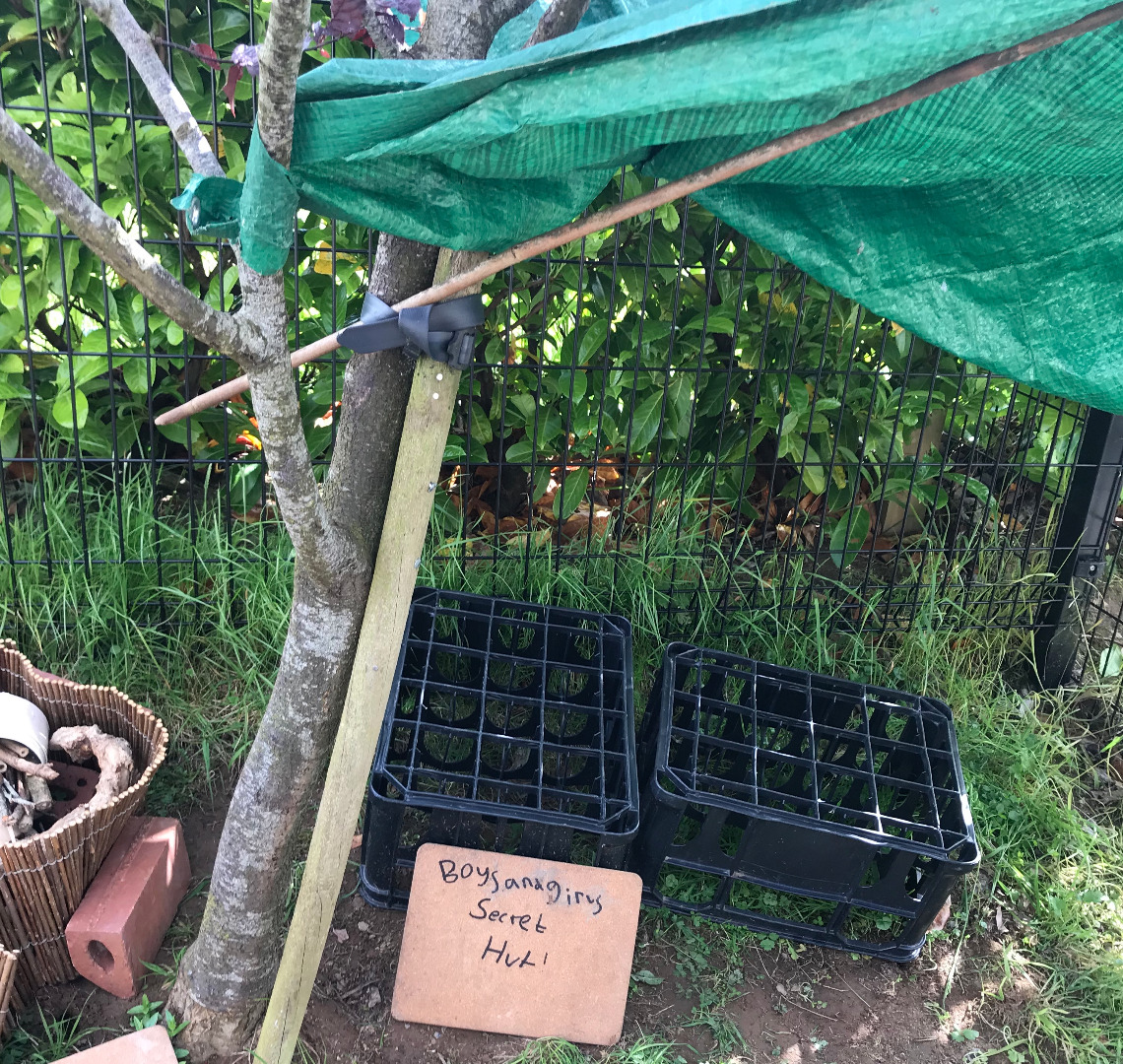
Resourcing Role Play - is so much more enjoyable when the children are consulted about resources for their play. The children here are encouraged to make lists of items that they need in order to develop their play. They have created their own system of placing a box beside each item. The box is ticked when the item has been sourced. The children write the words as they sound.
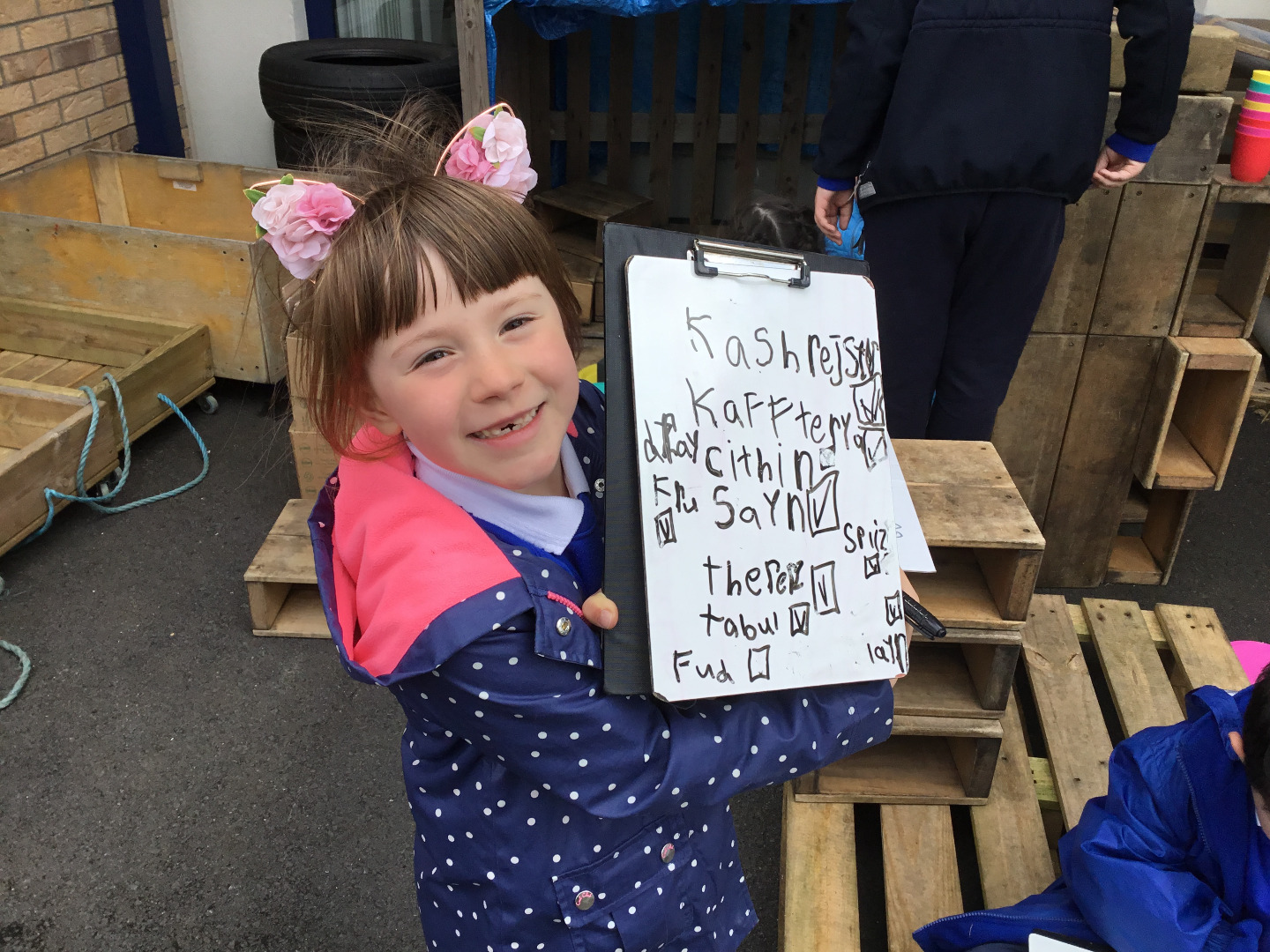
Early Mark Making - happens more readily when children's fine motor skills are stronger. Children begin to recognise the letter that their name begins with. They want to copy and write this letter often. Each child is different and will do this in their own time. It is so important that we do not put pressure on children to achieve all the same things at the same time.
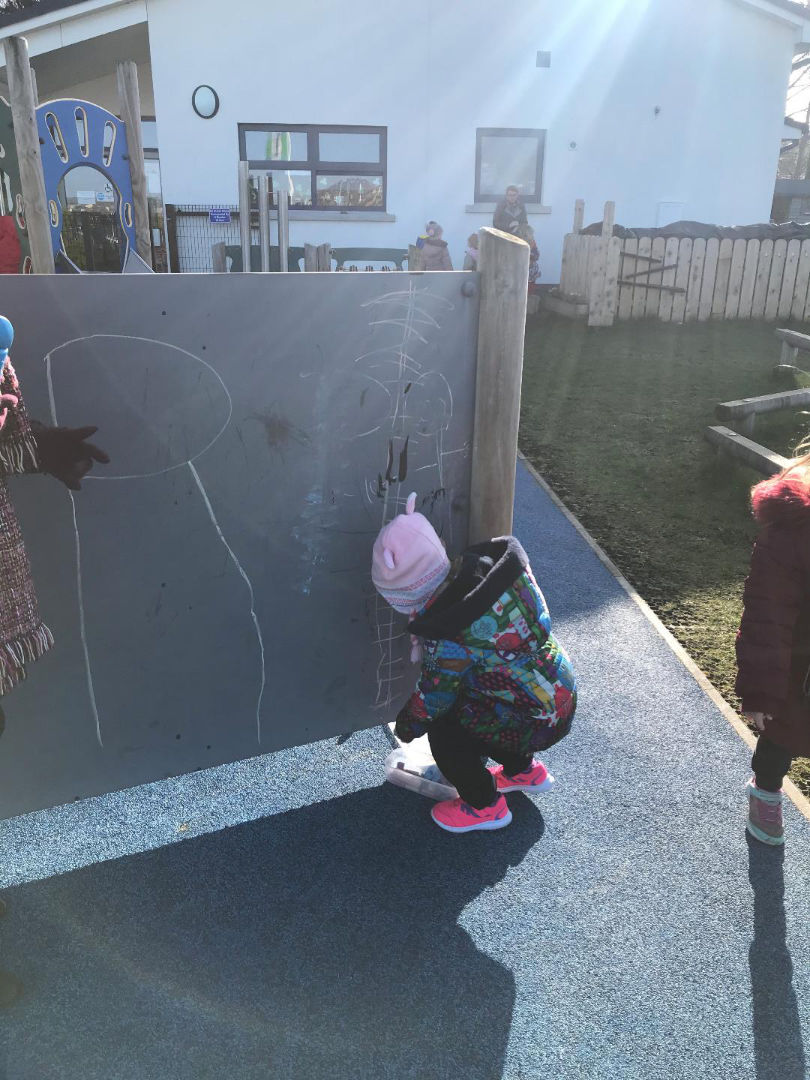
Plenary Sessions - afford children the opportunity to talk about their investigations. The children are encouraged to describe how they did something, rather than describing what they made or did. By talking about "the how", the children have to describe the sequence of events. Plenary sessions can happen in many ways and provide an opportunity for children to speak with purpose to an audience. Here, the photo has been uploaded to the screen so that the children can describe their work whilst using the picture as a visual prompt.
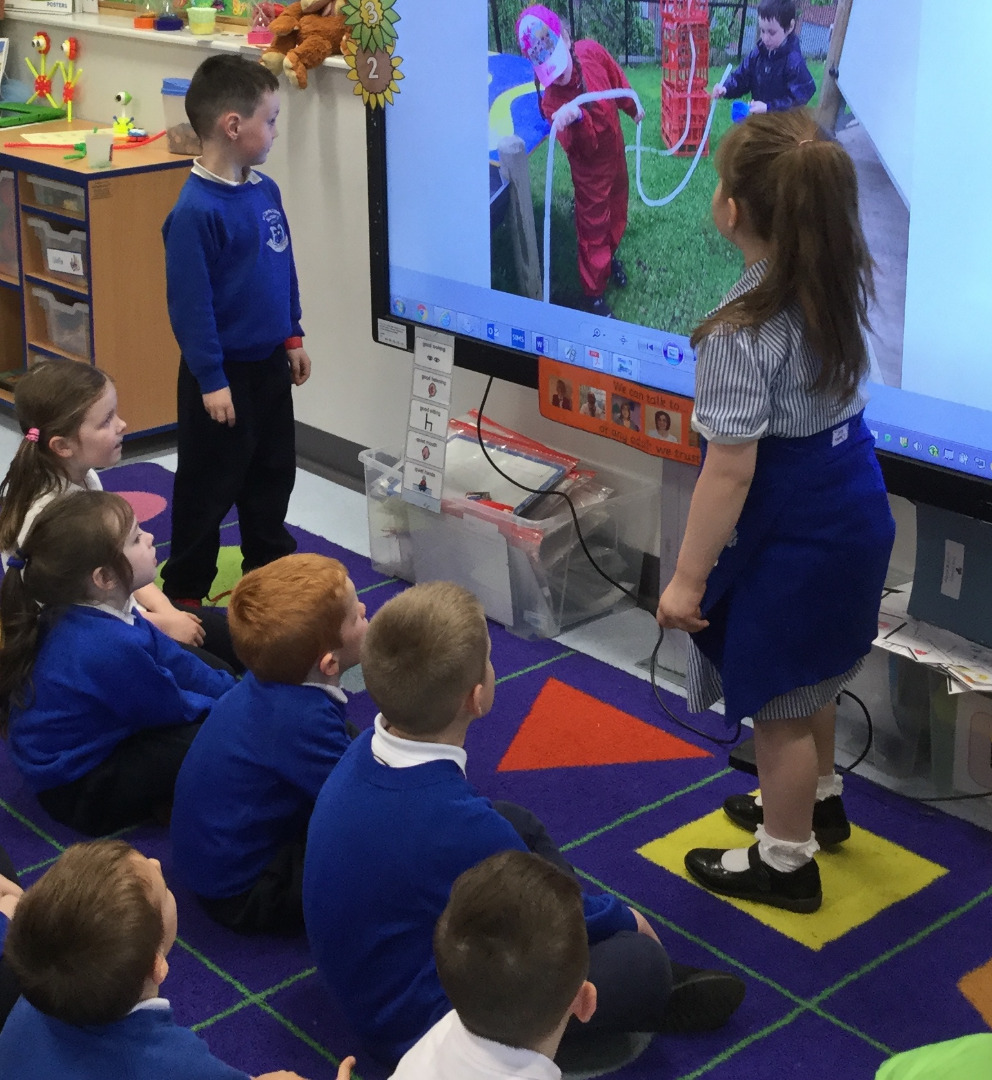
Bringing Play and Formal Learning together - Teachers use children's first hand experiences of shadow play to provide a context for creative writing. Writing is so much more enjoyable when the children are able to draw on their direct experiences. The adults are also gaining a valuable insight into the thinking of these 5 year old children. They listen to and place value on what the children say about their shadows, where they think they come from and how they are made.
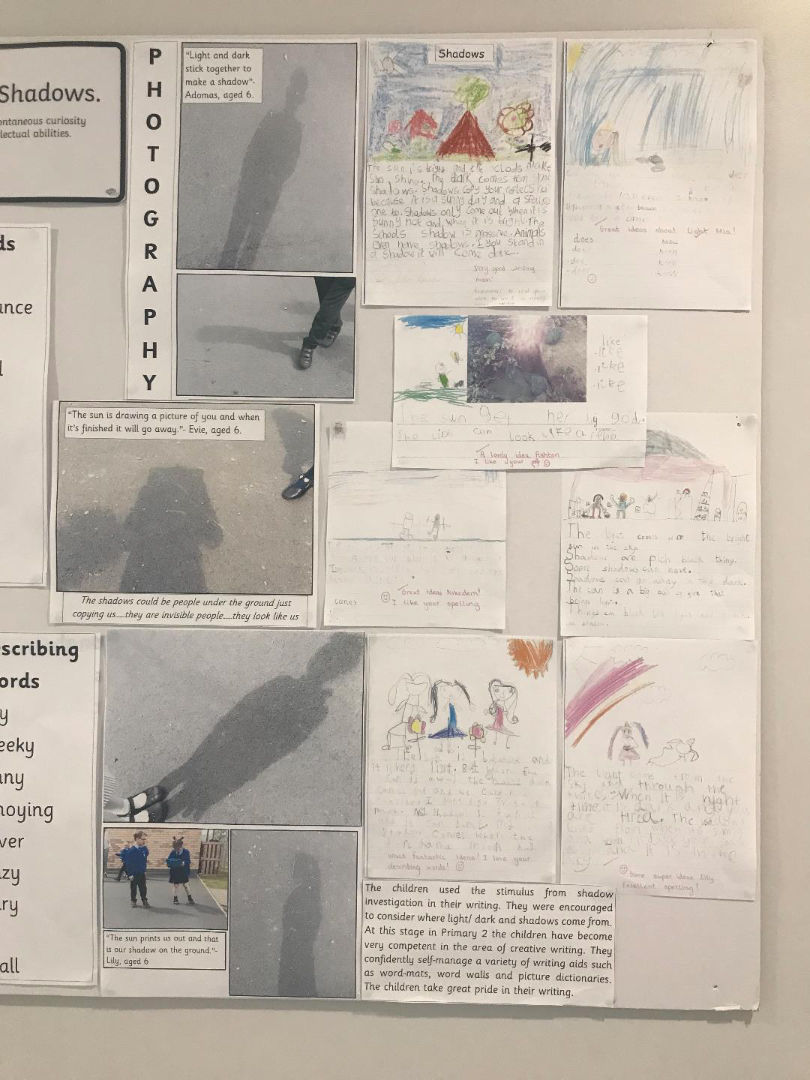
Remember that Literacy outdoors is about providing opportunities for talking, listening, reading and writing in a natural way. The outdoors is a place where children can practice many of the skills that they have been learning indoors. Adults should observe closely what children are saying and doing, and then provide the appropriate support or equipment to extend children's language, communication and literacy skills.